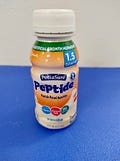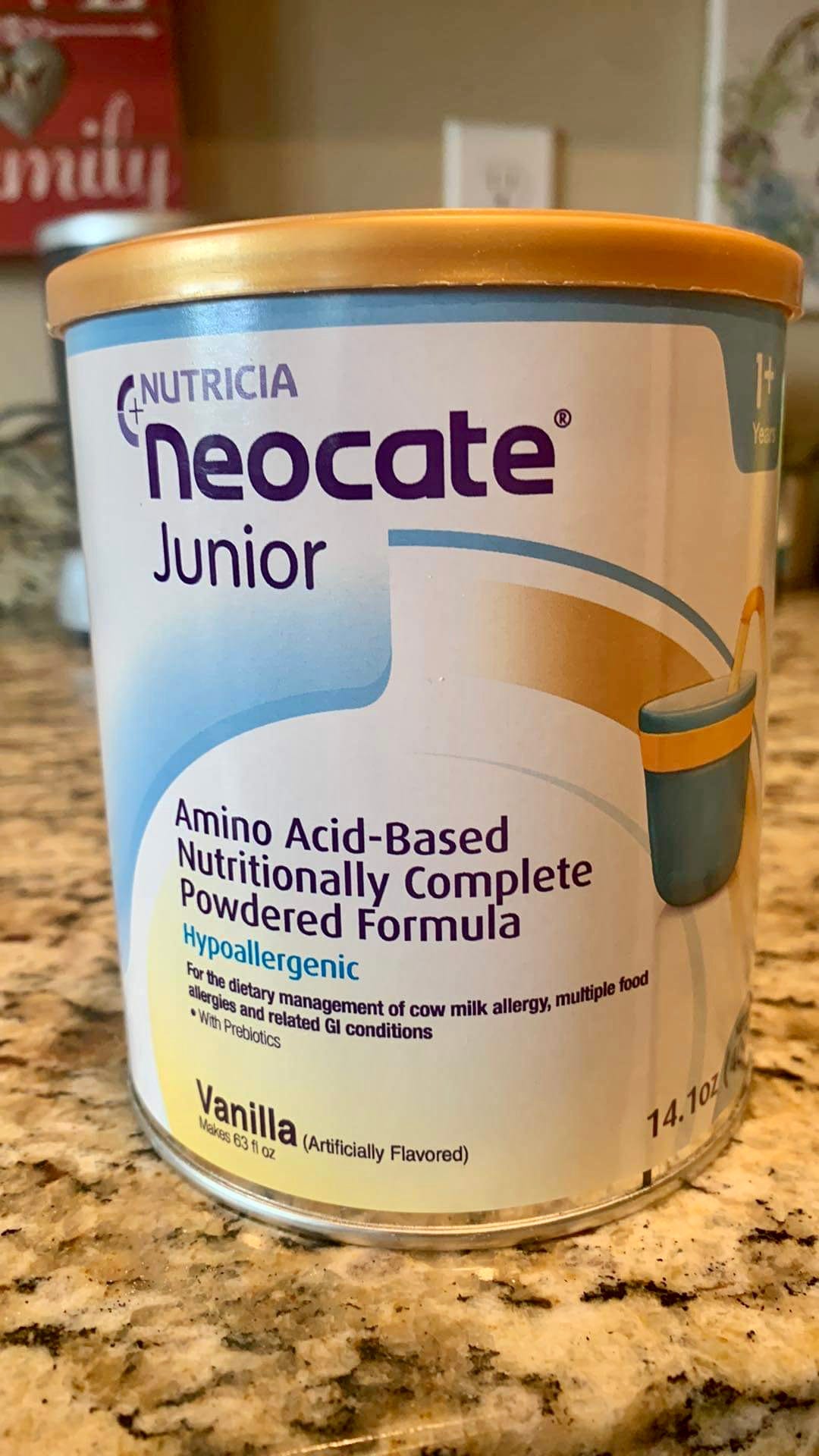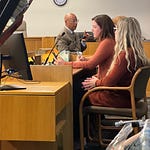“Hunger is not a problem. It is an obscenity. How wonderful it is that nobody need wait a single moment before starting to improve the world.” — Anne Frank
It is extraordinary how basic some of the fights can be in Special Needs World. (That’s what I call the web of bureaucracy that ensnares parents of disabled childrren.)
Food. The fact that your child needs food, that should be a settled question, right? There should be systems and services in place to make sure children don’t starve?
In Special Needs World, multimillion-dollar companies and government agencies throw up their hands and say maybe next month your child will have food.
The national news media has focused the formula shortage on babies. It is the largest population affected by the February shutdown of the Abbott Laboratories plant in Michigan, but older children with specific dietary needs are also affected and have few alternatives.
The Wall Street Journal this week reported that the company and the U.S. Food and Drug Administration received a whistleblower complaint more than a year ago that equipment at the plant was badly in need of repair and formula was going out without proper safety protocols. Two of four babies sickened with the same type of bacteria found at the plant died.
“Frankly the inspection results were shocking,” FDA Commissioner Robert Califf said during the congressional hearing last month, comparing the conditions in Abbott’s plant in the most recent inspection to a muddy kitchen. “We had no confidence in the integrity of the Abbott quality program at this facility.”
Production restarted a week ago and supplies are expected to level out by mid-July.
Meanwhile, hundreds of parents like Jennifer Murphy of Winston, Ore., have spent hour upon stressful hour and exorbitant sums for whatever they can find.
Murphy’s 9-year-old son Preston has multiple rare conditions that mean he can only eat very specific foods without severe and life-threatening reactions. He drinks about 4/5ths of a can of Nutricia’s Neocate, a hypoallergenic formula, every day. Despite not being manufactured by Abbott, it has still been nearly impossible to find. Murphy said she has recently had to pay up to $81.25 per can. The normal price is $41.75 and it is typically free to the family as it is purchased through Preston’s medical insurance.
“There are no other options so you buy it, but I get robbed,” Murphy said. “I asked my [son’s case worker] if I could be reimbursed because Medicaid buys this for my son monthly and Medicaid is not being charged due to this shortage… I haven’t heard back and it looks like there will be no reimbursement.”
Parent Les Rogers said he is worried his 8-year-old daughter will lose weight because they can’t find enough of the calorically dense formula she needs. Gloria drinks Pediasure Peptide 1.5 cal, which means that it has 50 percent more calories per ounce than normal formula. Rogers said they are fortunate to be able to afford the high-powered blender needed to make supplemental tube food but she can’t tolerate normal meal sizes so may soon start losing weight.
Rogers said he has spent 21 hours on the phone so far trying to switch medical suppliers and jumping through hoops to try to get enough for the month.
“There’s just so many issues with the bureaucracy and insurances to try to get it done,” he said.
There are plenty of things that others could have done to prevent this — and that they need to do to avoid the next crisis.
Regulators need to ensure that a handful of companies don’t have a monopoly on the formula market — and stop banning imports from other countries.
Medicaid, and other insurance, rules make it almost impossible for families to have even a week’s supply of extra formula in case of emergencies.
First, even if the child has been on the formula for years, families must initiate the order every month and they must order in a very narrow window of time. A few days early and they won’t process the request. A few days late and they will only give you the remainder of the month and not the full supply. Suppliers are also required to ask how many days’ supply families have on hand and will not ship if it’s too high.
Finally, the amount sent is determined by a prescription. Child is a little extra hungry one day? Now you have to decide if you can give them another meal or if that means you will run out before the end of the month.
“Not everybody is a robot and needs exactly ‘this much’,” Rogers said.
The Roseburg, Ore., dad said the only way he has ever gotten a buffer supply is when his daughter was hospitalized and they were given cans to take home.
The hospital may soon be Murphy’s only option. Preston would need to be on an IV while they trialed new formulas — an expensive and dangerous solution as a wrong move could give him organ damage.
“I am doing everything in my physical power to not change his formula,” she said, describing daily calls and searches.
Industry experts are saying they expect supplies to be back to normal by mid-July.
“The good news is that we have sun on the horizon,” Rogers said, “but the bad news is that everyone will go: ‘Whew, that’s over,’ and won’t address the underlying issues.”
In an increasingly unstable planet — with supply chain issues, natural disasters and wars — one thing is certain: There is no going back to normal.
Wondering how you can help? If you have extra supplies, Feeding Tube Awareness has a list of supply exchange forums on its website.
The second Sunday of every month Medical Motherhood publishes Where Is the Manual for This?!, an editorial cartoon by Lenore Eklund.
Medical Motherhood’s news round up
Snippets of news and opinion from outlets around the world. Click the links for the full story.
• From the Associated Press: “W.Va. gov signs law barring abortion because of disability”
West Virginia Republican Gov. Jim Justice has signed a new law barring parents from seeking abortion care because they believe their child will be born with a disability.
Justice posted about his signature of the “Unborn Child with a Disability Protection and Education Act” on Twitter on March 21. He made the announcement about the new law in a tweet to celebrate World Down Syndrome Day.
He said the bill gives “deserved respect to our Down Syndrome community.”
The law prohibits people from seeking abortions because their child will have a disability, except in the case of a medical emergency or in cases where a fetus is “nonmedically viable.”
• From Aleteia: “Most Catholic schools can’t accommodate kids with disabilities; this woman is changing that”
[…] Francesca [Pellegrino] began talking to parents, clergy, and teachers. She saw that many other families with children with disabilities wanted to send their children to Catholic schools.
Many were deeply frustrated that they had to send their child with disabilities to a different school alone while all the other siblings went to Catholic school together.
Her son never did attend Catholic school, but Francesca is determined to make it possible for other children with disabilities to find a supportive and welcoming place at Catholic schools.
[…]Francesca’s Catholic Coalition for Special Education] is present in two dioceses: Washington, D.C. and Baltimore, Maryland. But their work is gaining national attention.
The U.S. Conference of Catholic Bishops (USCCB) has invited CCSE to participate in the synod consultations on the national level about special education inclusion in Catholic schools.
“There is a lot of demand for these programs around the country,” Francesca said. “It’s a very hopeful sign that things are opening up and moving in the right direction.”
These consultations are open for anyone, anywhere in the world, to attend, thanks to an online option. The next one will take place Thursday, June 16 at 7:00 p.m. at the Catholic University of America, and you can find more information and register here.
“The synod is calling for a journeying together,” Francesca said, “But in families with kids with disabilities, there’s still a sense of isolation that they’re in it alone and they don’t have the kind of support that they might need from their parish community.”
• From The New Times (Rwanda): “Ngoma, Rulindo students emerge winners in national ICT competition”
Moise Nahimana from Rulindo district and Yvan Gihozo from Ngoma district are the winners of the 5th edition of the Scratch Programming Competition at high school and primary school levels respectively.
The annual competition organised by Rwanda Basic Education Board (REB) is a national level competition which brings together students from all 30 districts of the country.
[…]The 16 year-old Nahimana, whose project was the best overall, shared his excitement with The New Times. “I’m so happy and very excited. I can’t wait to talk to my parents and tell them that I finally made it,” he said.
He created an online learning programme specifically designed for kids.
“My project was inspired by my experience during the lockdown due to Covid-19. During the lockdown, we couldn’t continue our studies because we couldn’t afford studying online,” he shared.
“The alternative was to follow class on TV. But it made me realize that online platforms were necessary even for children from poor families, or those with disabilities,” he continued.
Nahimana’s invention enables hearing impaired students to access the platform by availing sign language interpretations for the audio and video content.
Medical Motherhood is a weekly newsletter giving those raising disabled children the news and information they need to navigate complex systems. Get it delivered to your inbox each Sunday morning or give a gift subscription. Subscriptions are free, with optional tiers of support. Thank you to our paid subscribers!
Follow Medical Motherhood on Facebook, Twitter, TikTok, Spotify, Apple Podcasts, or Instagram or, visit the Medical Motherhood merchandise store to get a T-shirt or mug proclaiming your status as a “medical mama” or “medical papa.”
Do you have a question about raising disabled kids that no one seems to be able to answer? Ask me and it may become a future issue.


















Dire consequences of ongoing formula shortage could have been avoided, parents say